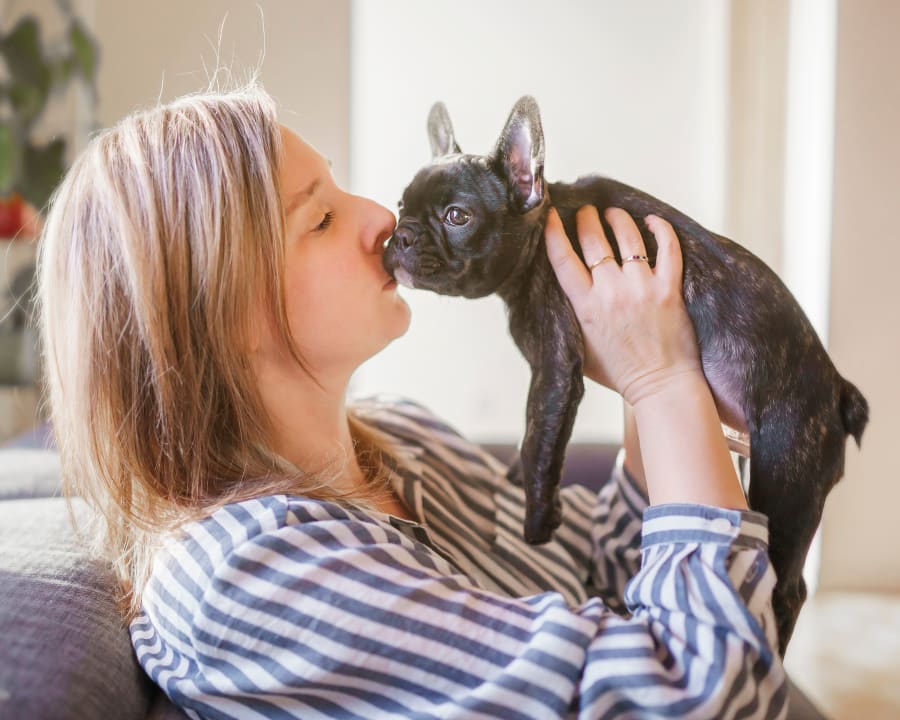Keeping the Cat and Dog Population Happy & Healthy
At Country Meadows Pet Hospital, we recognize the importance of spaying and neutering your cats or dogs. These routine surgeries prevent unwanted pregnancies, reduce the number of unwanted dogs and cats in the community and help your pet live longer, healthier lives.
These surgeries can also significantly reduce the risk of certain types of infections and cancers. Additionally, spaying and neutering can help reduce behavioural problems such as aggression and roaming.
We take precautions to ensure a safe and successful surgery. These include pre-operative blood work and diligent pain relief and monitoring during and after surgery. We do everything we can to ensure that your dog or cat is comfortable and pain-free from start to finish.
We encourage you to speak with our veterinarians to learn more about the benefits associated with spaying and neutering.

The Reality of Animal Shelters in Canada
Canadian humane societies and SPCAs took in nearly 28,000 dogs and 79,000 cats between 2019 and 2021.
These numbers do not include animals taken in by the countless private rescue agencies across the country.
Reducing the number of unwanted dogs and cats filling Canadian shelters is, for many people, the primary benefit of spaying and neutering, but there are other benefits to these surgeries.
The Benefits of Spay & Neuter Procedures
Not only do spay and neuters help keep the puppy and kitten population down, and prevent unwanted cats or dogs from ending up on the street, they have a number of other benefits too.
Neutering (Males)
Neutering is a surgical procedure where the testicles are removed from male cats and dogs, preventing them from fathering litters.
Cats: Neutering your cat can help to curb undesirable behaviours like spraying, roaming and aggression towards other cats.
Dogs: Neutering your dog may help to reduce aggression, 'humping' and attempts at escaping your home or yard.
Spaying (Females)
Spaying removes a female cat or dog's reproductive organs. This surgery prevents your cat or dog from becoming pregnant.
Cats: Spaying your cat may help prevent it from wanting to escape your home, roaming, yowling and urinating outside the litter box.
Dogs: Having your dog spayed ends their heat cycle and helps prevent pyometra (womb infection) and mammary tumours.
When to Spay or Neuter Your Cat or Dog
No one understands your cat or dog's health better than their veterinarian. Although we provide general spay and neuter guidelines below, it is always best to consult your veterinarian for advice.
-
Cats
You can spay or neuter a cat as young as six to eight weeks of age. However, the standard is to spay or neuter when the kitten is between five and six months old. That said, a healthy adult cat of any age can be spayed or neutered.
-
Dogs
Traditionally, veterinarians have recommended that puppies get spayed or neutered at around 6 months of age. Some veterinarians have concluded that it is better to wait until the dog reaches sexual maturity before performing these reproductive surgeries. Speak to your veterinarian to determine the best time to have your dog spayed or neutered.
Spaying & Neutering FAQs
For answers to more of your questions about spay and neuter procedures, please read through the answers to these frequently asked questions from our clients.
-
How long will it take for my pet to recover from surgery?
When your companion is spayed or neutered, typically they are sent home the same day as their procedure.
You will need to restrict their activity for about 10 days while their surgical incision heals. Your veterinarian will also provide you with a protective collar to prevent them from licking the incision.
Your vet may also request that you bring your pet in for a follow-up appointment.
-
Will my pet feel anything during the procedure?
No, your dog or cat will be under general anesthesia so they will not feel anything while they undergo surgery.
-
Will my pet gain weight after the procedure?
Your puppy or kitten will continue to grow to their full adult weight after the spay or neuter procedure, and this naturally includes some weight gain.
However, your pet will not gain weight as a result of being spayed or neutered.
-
How much will it cost to get my pet fixed?
The cost of your pet's spay or neuter surgery depends on a wide variety of factors including the size of your pet and overall state of health. To get an accurate estimate of the cost of your pet's reproductive surgery contact us today.
